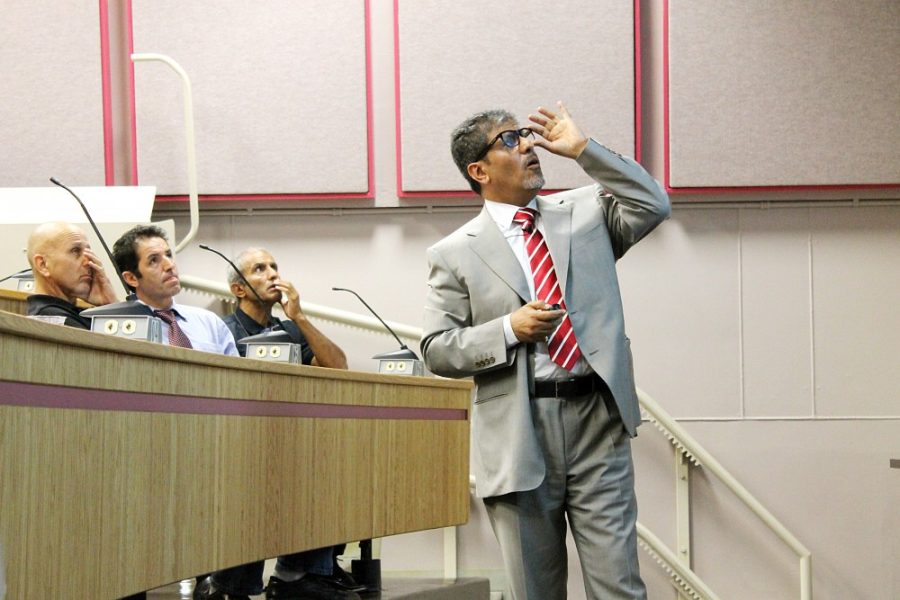Turki Faisal Al Rasheed, a UA alumnus from Saudi Arabia and chairman of Golden Grass Inc., professed his belief that agriculture is the key to economic growth during a talk on Friday in the Marley building.
“I’ve always had this theory that agriculture is the right tool,” he said. “All my wealth I made from agriculture.”
Al Rasheed said he believes agriculture is a way to help reduce the poverty line through investment. He also said he believes investments in local agriculture would help the economy by reducing food import costs and augmenting export production.
In his presentation, Al Rasheed said that the population of the world is predicted to reach 7 billion people by Halloween.
“The world needs a lot of food,” he said.
Kevin Fitzsimmons, director of international programs in the College of Agriculture and Life Sciences, said the Saudi Arabian government aims to invest in agriculture in other countries in a fair and sustainable way. He said the idea is to buy land in other countries and send the food back to the main country. This helps stimulate the local economy where the food came from, and the economy of the country who buys the land and imports the food they grow.
Although investing in local agriculture may help reduce the poverty line, Al Rasheed said there are limitations to what can be done. Al Rasheed’s focus is to reduce the security gap, improve the standard of living, conserve natural resources, distribute wealth and promote economic growth. But to do so, Al Rasheed said there are a few obstacles that need to be overcome such as improving water optimization programs, establishing crops, and improving the country’s infrastructure.
He said that, although his knowledge and experience were based in Saudi Arabia, the same concepts can be applied to the U.S. and many other countries.
One major issue that Al Rasheed stressed is the search for water. He said 72 percent of the world’s total water consumption goes to agricultural practices every year.
Water is a huge issue and continues to be so for many countries, Al Rasheed said. To optimize water usage it is necessary to reduce agricultural subsidies, meter ground water levels and raise public awareness of water conservation, he said.









